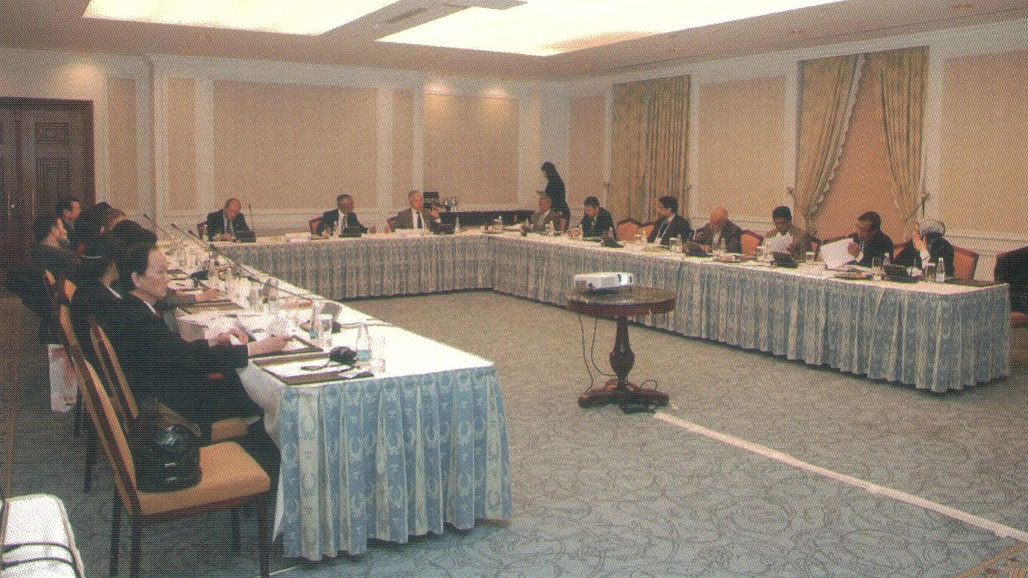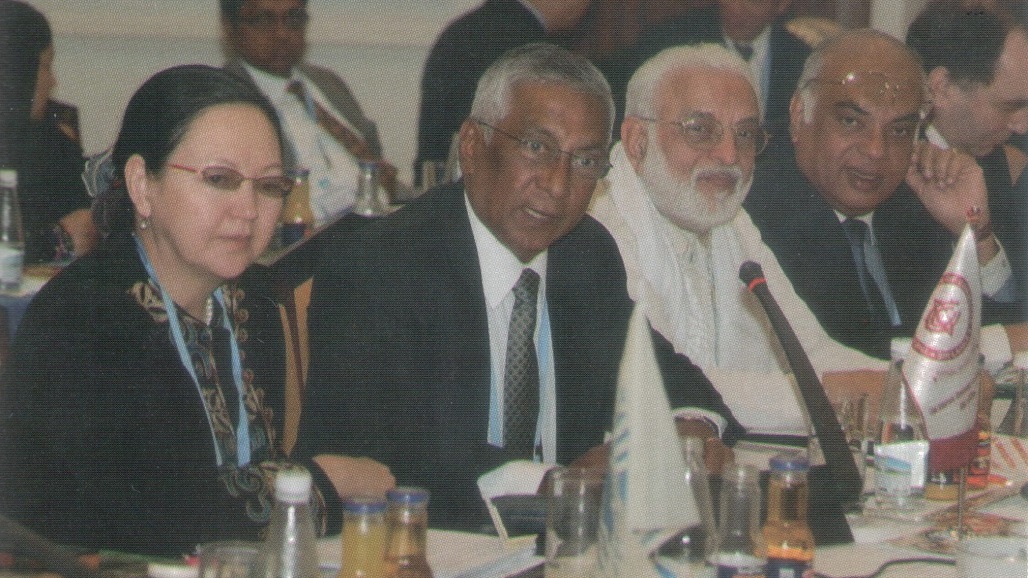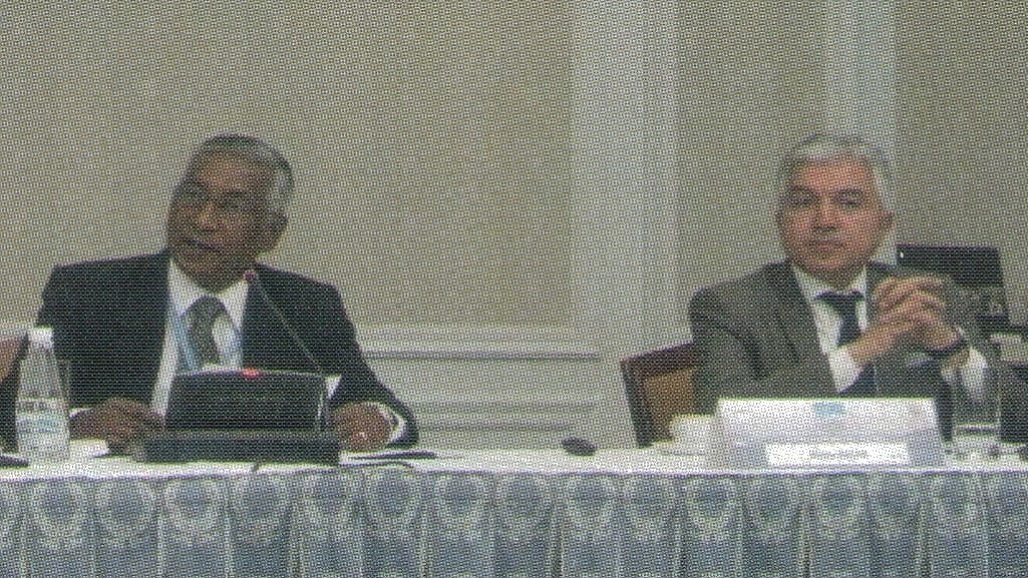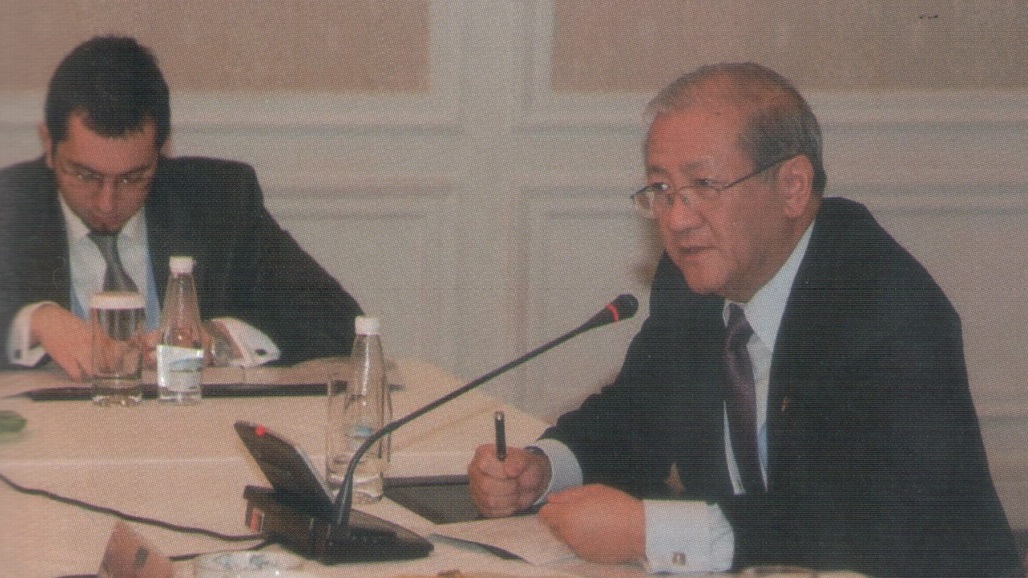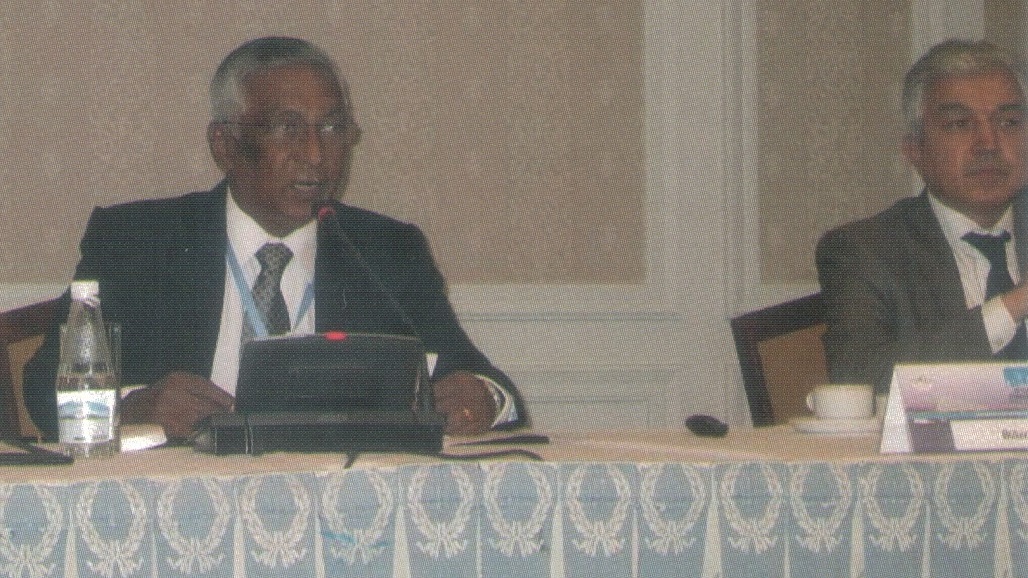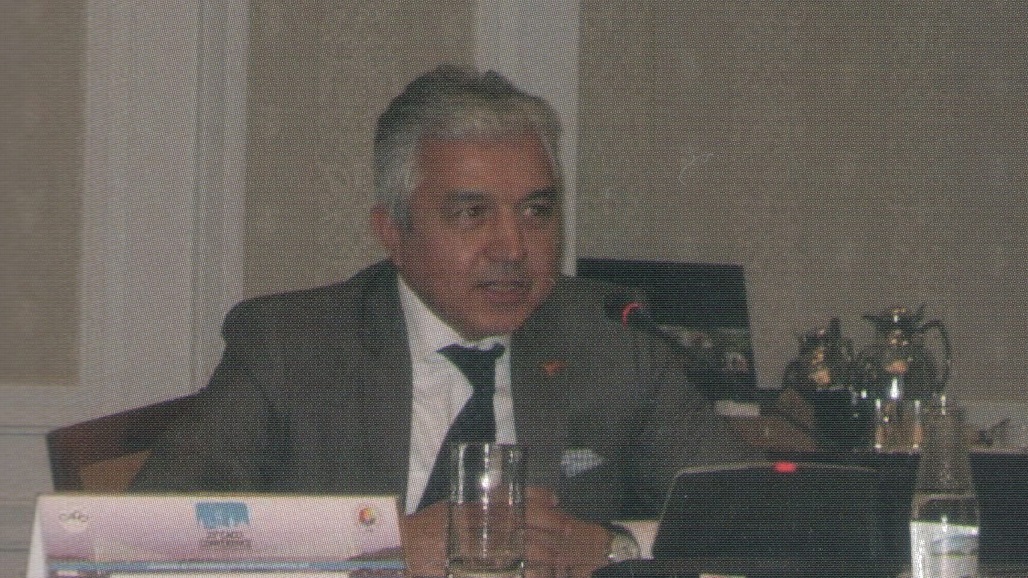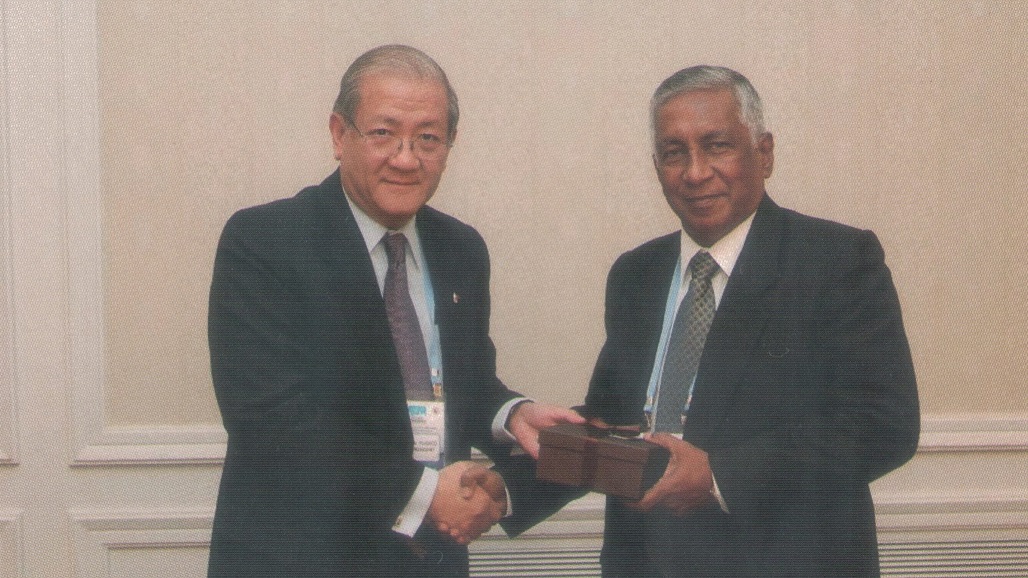Mr. Malwatte made a report on the textile and apparel industry sector in Sri Lanka. In his report, Mr. Malwatte said that the apparel sector in Sri Lanka predicted by many experts to face drastic decline in exports after the MFA phase out. However, the country proved these expert views to be wrong and effectively face competition by becoming more innovative and by moving up the value chain and getting away from the highly competitive mass market. Despite many setbacks faced globally and locally, the apparel sector still manages to record a positive growth each year. The apparel export account slightly over 40 percent of exports of the country.
Mr. Malwatte noted that the Sri Lanka apparel industry is one of the world’s leading proponents of ‘Ethical Business and Manufacturing Practices’ for the Global Fashion and Apparel Sourcing Business, and Sri Lanka itself is renowned as the world’s first ethical apparel sourcing destination. The industry has endeavoured to ensure that the best in class business practice go hand in hand with social responsibilities to create world class apparel solutions for the choicest global brands.
Mr. Malwatte further reported that “Sri Lanka Apparel – Garments without Guilt,” which is the ethos of the Sri Lanka apparel industry, epitomizes the synergy between ethical brands and apparel made in Sri Lanka. The country’s ethical sourcing and sustainable development practices aim to empower women and support their communities through poverty alleviation and offering opportunities for education and persona growth. With the development of sustainable eco-friendly solutions to apparel manufacturing, Sri Lank has endeavoured to make the ‘Made in Sri Lanka’ label synonymous with quality, reliability and social and environmental accountability. Mr. Malwatte said that Sri Lanka is proud to be the only outsourced manufacturing country in Asia which has ratified 39 ILO conventions.
Mr. Malwatte cited some of the international recognitions bestowed on the Sri Lankan apparel industry, as follows:
The Hirdaramani Group was awared the “Gold Flame” at the recently concluded “Sri Lanka National Energy Efficiency Awards.” The award recognizes the Group’s success in reducing its carbon fooprint via a series of measures to reduce energy consumption with a strong focus on environmental woven into their corporate culture wastage.
The United Nations Industrial Development Organization (UNIDO) has recommended the Brandix Group’s ‘green apparel factory’ as a model of sustainable production to manufacturers around the world. The endorsement of the facility at Seeduwa was made by UNIDO Director General Dr. Yumkella, during a visit on the 11th of June 2010. The 130,000 square foot Brandix Eco Centre is the Group’s lead manufacturing plant for Marks & Spencer, and has been rated Platinum under the Leadership in Energy and Environmental Design (LEED) Green Building Rating System of the US Green Building Council (USGBC). The flagship facility is one of the 27 business unites operated by Brandix in Sri Lanka, India and Bangladesh, supplying brands such as Gap, Marks & Spencer, Victoria’s Secret and many others.
MAS Intimates, the eco-manufacturing facility of MAS Holdings won, the coveted Globe Award for Sustainability Innovation for 2010 at a ceremony held on April 29 in Stockholm. Globe Award is a non for profit organisation working on sustainable development and the Globe Awards are presented to encourage sustainability. For 2010, the Globe Award jury, consisting of a group of eminent global personalities selected MAS Intimates Thurulie as an example of innovation that combines sustainable development with successful business ethics.
Mr. Malwatte concluded by saying that price, quality and markets are no longer the only important factor for success. Ethical business practices, environmental standards and social corporate responsibility are emerging factors that will give a competitive edge in the future.
Mr. Bulent Baser reported that Turkey has invested over US$100 billion from 1900-2009 in textile and apparel industry and that had contributed to Turkey’s rapid development becoming a major player in the sector. Investments were in HR, product development, design and development of technology. He also noted that Turkey moved to the high end market that was the area where the country had an advantage.
The discussions that followed Mr. Baser’s presentations noted and reached consensus on the following trends and observations.
- Countries are protecting internal markets due to high importance of protecting high labor intensity markets.
- FTA are on the increase between countries but there are many non-tariff barriers blocking market entries.
- Future factors that will influence growth: price factor (14%), quality considerations (35%), delivery (27%), design (14%), and social responsibility (9%.)
- The social responsibility considerations will increase.
- Buyers are looking at “Full Package Providers.”
- Buyers are expecting 6-8 weeks delivery and therefore “Full Package Providers” stand to gain in the future. “Full Package Provider” preference is more applicable for high end products.
- The thinking that there would be a shift to cheaper garments with the global financial crisis is not right. The demand for cheaper garments has not materialized.
- There will be a demand for cheaper garments in the sector pyramid at the bottom. The share of the pyramid will change from country to country. The cheaper garments given low margin and countries may remain catering for local demands.
- There is a need for local and regional brands as well. Experience show that local and regional brands have done well.
- Less developed countries like Bangladesh will have growth prospects due to concessions they receive in exports, but they should move up to high value products and not concentrate too much on cheaper garments.
- ndia and China will have demands on the local markets and may slow down exports.
Considering the vast knowledge and experience of Mr. Baser of over 15 years, it was proposed that he takes over the chairmanship of the Asian Textiles and Garments Council. Mr. Baser was honored by the proposal but suggested that Mr. Bashir of Pakistan, who is the head of ITMF be nominated instead. Mr. Baser agreed to communicate the request to Mr. Bashir.
